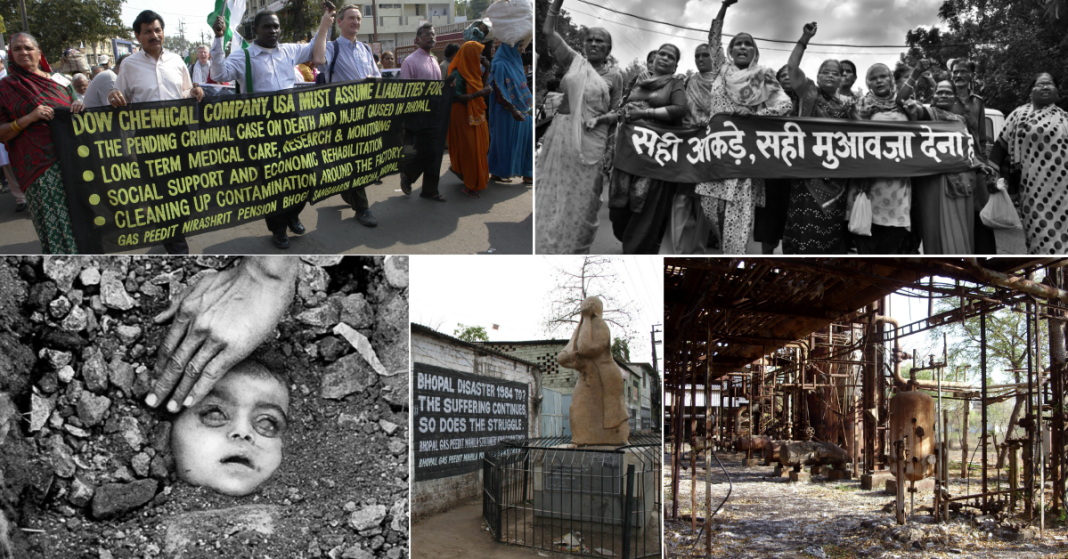After nearly four decades of persistent struggles and debates, Bhopal, the city that still bears the scars of one of the world’s worst industrial disasters, has taken a crucial step toward healing. In a historic move, the last remnants of the toxic waste associated with the 1984 Union Carbide gas leak have been removed from the site, marking a significant milestone in the city’s long, painful recovery.
The Bhopal gas tragedy, which took place on the night of December 2-3, 1984, resulted in the leakage of methyl isocyanate (MIC) gas from a pesticide plant owned by Union Carbide India Limited (UCIL). The disaster led to the immediate deaths of over 2,000 people, with long-term health consequences affecting thousands more. The effects of the tragedy still haunt the city’s population, with many suffering from chronic respiratory issues, cancer, and other health problems linked to the toxic exposure.
A Relentless Legacy of Toxic Waste
In the aftermath of the gas leak, Union Carbide abandoned the plant, leaving behind a large quantity of hazardous waste in and around the facility. Over the years, these toxins seeped into the groundwater, causing widespread contamination. Despite numerous promises from the company and the Indian government, the cleanup of the site remained an unresolved issue, and the residents of Bhopal lived in constant fear of further environmental and health risks.
For decades, the toxic waste left at the site remained a reminder of the neglect and the corporate indifference that characterized the aftermath of the tragedy. The hazardous material included chemical sludge, heavy metals, and other dangerous substances, which posed a significant threat to both human health and the environment.
Decades of Struggle and Advocacy
Efforts to clean up the site were slow and inadequate. Local activists, survivors, and environmental organizations campaigned tirelessly for the removal of the waste, but their calls often fell on deaf ears. The survivors’ movement, led by groups like the Bhopal Gas Peedit Mahila Udyog Sangathan (BGPMUS) and Bhopal Gas Peedit Nirashrit Pension Bhogi Sangharsh Morcha (BGPNP), highlighted the injustice of leaving such a toxic legacy behind while the victims continued to suffer.
For years, the Indian government and local authorities found themselves caught between legal battles, bureaucratic red tape, and financial constraints. Meanwhile, the multinational corporation responsible for the disaster, Union Carbide (later acquired by Dow Chemical), evaded full accountability for its role in the environmental devastation.
Breakthrough: The Final Cleanup
The breakthrough came after years of legal pressure and public outcry. In 2023, after sustained advocacy, the government of Madhya Pradesh, supported by national environmental groups, finally moved to expedite the cleanup process. The state authorities coordinated with environmental specialists, toxicologists, and international agencies to carry out the complex task of safely removing the waste from the site.
The operation involved neutralizing toxic chemicals, securing the waste in specialized containers, and ensuring its proper disposal at certified hazardous waste management facilities. The operation was not without its challenges, but with modern technology and expert intervention, the toxic legacy of the Union Carbide plant was effectively dismantled.
A Step Toward Justice and Healing
This cleanup effort is a significant step toward justice for the victims and the people of Bhopal, though it does not erase the years of suffering caused by the gas leak. It offers hope to those still grappling with the long-term effects of the disaster and demonstrates that the fight for environmental justice can yield results, even after decades.
The removal of the toxic waste is also a crucial symbolic victory. It marks a step toward healing, both for the environment and for the community that has lived in its shadow for so long. While the full extent of the damages caused by the 1984 disaster will never be undone, the resolution of the toxic waste issue signals that Bhopal is slowly reclaiming its future.
Looking Ahead
Though this is a moment of relief for Bhopal, the fight for justice is far from over. Many survivors and families of the victims still seek accountability, compensation, and health care. The tragedy has raised important questions about corporate responsibility, government oversight, and environmental protection that continue to resonate globally.
For Bhopal, however, the removal of toxic waste is a long-awaited victory—a hard-won step in the ongoing journey toward healing. The city’s resilience, alongside the tireless advocacy of its people, serves as a reminder of the strength of communities in the face of unimaginable adversity.
As Bhopal begins to recover from the scars of the past, the world can only hope that the lessons learned from the gas tragedy will lead to stronger environmental safeguards and more effective corporate accountability in the future.
BY- KARTIK



